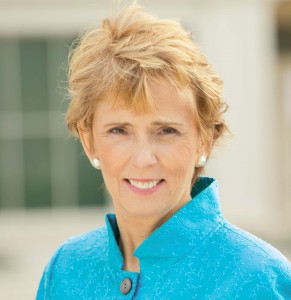POST: The Value of Presence in Medicine

Copyright: <a href=’https://www.123rf.com/profile_bialasiewicz’>bialasiewicz / 123RF Stock Photo</a>
When an American doctor is asked to examine her friend’s mother in a Chinese hospital, she realized it was her presence and caring that really mattered.
Zhuo came with a self-assured attitude, lots of stories, and several films under her belt. I had volunteered to host a film director during the Denver International Film Festival. We liked each other immediately.
Zhuo’s story was unique to her but at the same time all too typical of family histories during the Cultural Revolution. Her father had been taken away in the middle of the night and was eventually killed by Communist Party officials. They told his wife of his death two years after his execution.
Zhuo, her sisters, and brother were sent to the country to work the fields. Her mother was jailed in a basement cell with standing water. Her life was spared because she spoke Russian, Spanish, and English, in addition to her native Chinese. When she was released, the Communist Party officials—they called themselves “cadres”—called her a hero.
Meeting Zhuo’s mother
After meeting Zhuo, I wanted to meet her mother, the woman who had raised a daughter full of self-confidence and unafraid to challenge authority. Her mother was sick and if I wanted to visit her before she died, it would need to be soon.
Even in 1996, years after normalization of relations and after two full decades of robust trade with the West, Chinese airports remained confusing places. I could not even guess at the signs. Passengers carried items that would never be allowed on a Western plane. I was thrilled—and relieved—to see Zhuo waiting for me.
She took me to a guesthouse once used by the cadres for meetings. We left my luggage and headed to her house. I met her mother in their one-room apartment, one of several apartments on one floor in a several floor house that originally housed a French family. Now, each room housed one family—in this case, Zhuo, her mother, one of her sisters, and a third person who helped the family.
I walked to the porch just off the room, where her mother was bedridden. Her fingers were bent where the fingers branched from the hand, one of the signs of arthritis. I gave her mother my gifts—a purse and some chocolates. She gave me an Asian teapot of brick colored fired clay. She asked for us to be photographed together. I posed for portraits of Zhuo’s mother with me, her sister with me, and Zhuo with me. Her mother had long forgotten any English, so Zhuo translated. I felt honored.
Zhuo returned me to my room, where I fell into a jet-lag induced coma.
About 5AM, the telephone rang.
“My mother is being taken to the hospital,” Zhuo said. “I am on my way in a taxi to take you to see her.”
I started off as a practicing physician, transitioning to administrative medicine several years previously. Friends still relied on me for help with their medical care.
I leapt out of bed, splashed some water on my face, and headed to the lobby. Moments later, Zhuo arrived. Zhuo told me through tears that her mother had suddenly become sick and was rushed to the hospital. She did not know what was wrong. As I listened, I was acutely aware I was in a foreign country, unlicensed as a physician, and with absolutely no knowledge of the language.
I arrived at the hospital, the only Westerner in the place. I felt as if I were in an old movie, passing wards filled with patients on mattresses in ancient iron frames, all looking expectantly at the visitors. This time, I was the main attraction.
Because Zhuo’s mother was now considered a hero, she was given the best, a tiny “private room”, usually for two patients. The other bed was empty and Zhuo’s brother and the sister I had met the previous day were in the room. Her mother was still dressed in her bedclothes from the night before, spotted on the front with vomit. She was fading in and out of consciousness.
Zhuo brought me her mother’s medical chart, in Chinese. Zhuo translated Chinese to English. I noticed numbers and assumed 0.9% probably referred to normal saline. I translated from numbers to medical care.
I asked for a stethoscope, but it was really about presence
I did what all physicians automatically do when asked to examine a patient. I asked for a stethoscope. Someone opened the door and shouted, scattering the audience that had accumulated outside, noses pressed to the glass to see who was so special she rated a Western physician. A young physician arrived, eyes blinking as if just awakened, obligatory stethoscope around her neck. She handed the stethoscope to me and returned to bed. No turf battles here. From my own time as a resident, I recognized the need for sleep.
I slipped into the routine, applying the stethoscope to the patient’s chest and back, asking for deep breaths. She would briefly lose consciousness, awaken, smile at me, and then fade out again. As I listened to her heart, her lungs, and felt her abdomen, the others in the room calmed down, asking me questions through Zhuo. I had no idea what was wrong, but I knew her vital signs—pulse, blood pressure, and temperature—were all stable.
I suspected she was in good hands. I was window dressing. I was doing what all physicians are often asked to do—to just be there, to help translate medical terms, to comfort the patient and her family.
The routine is like a well-rehearsed dance where you know all the steps and the next bars of music. A dance with patients—a waltz with slow, painstaking maneuvers and a deliberate pace. You know the dance you’re doing and the steps you can take, but you’re not quite sure where it will lead.
As I stood there, looking down at Zhuo’s mother, I realized it isn’t always about the actual diagnosis or about the treatment. It’s about just being there, about caring, about touching the patient, about the process, about the dance, and about presence.
(Zhuo’s mother was eventually discharged and lived for another year. Zhuo is a pseudonym.)
Published on The Doctor Weighs In
[mashshare]CATEGORIES:Recent Blog Articles

In Medicine, The “Soft” Skills Are Essential
Michael’s Story: The Beginning “I’m straightforward, to the point,” said Michael, the CEO at a large inner-city hospital. “The people I work with—they may not like me, but they know I’m right.” “What else?” I said to Michael, whom I had just been retained to coach. “I just wish they understood me. I do what’s […]
CATEGORIES: Coaching Emotional Intelligence Physician Leadership

Dr. Margaret Cary spoke at the American Society of Hematologists
December 3, 2018 Dr. Cary delivered an interactive presentation on Women’s Leadership at the Women in Hematology reception at the ASH’s annual meeting of nearly 28,000 attendees in San Diego.
CATEGORY: Coaching

What We Can Learn About Leadership from The Boss
A Bruce (The Boss) Springsteen fan reflects on what her coaching clients can learn about leadership from him.
CATEGORY: The Doctor Weighs In

Develop a Coaching Culture
What might you do to develop a coaching culture in your office, in your organization? “I know I blow up and get angry. I am protective about my patients and the physicians in my department and I can’t help myself.” Dr. Leonard was one of my coaching clients, a surgeon who had left a trail […]
CATEGORIES: Coaching Physician Leadership

The Value of Coaching in Medicine
With Jack Penner Jack and I recently joined Dave Etler, Administrative Services Coordinator for Student Affairs and Curriculum with Carver College of Medicine at the University of Iowa, and Carver medical students Amy Young, Aline Sandouk, and Mark Moubarek at The Short Coat Podcast for “weird news, fresh views, helpful blues, and interviews by students, for students” […]
CATEGORY: Medical Education

The Value of Presence in Medicine
When an American doctor is asked to examine her friend’s mother in a Chinese hospital, she realized it was her presence and caring that really mattered. Zhuo came with a self-assured attitude, lots of stories, and several films under her belt. I had volunteered to host a film director during the Denver International Film Festival. […]
CATEGORIES: Emotional Intelligence Quality of Care
